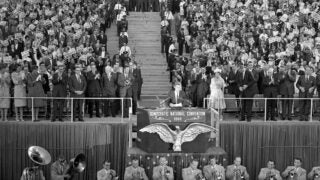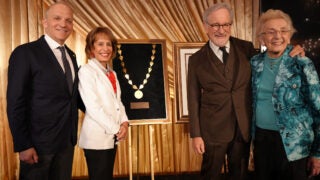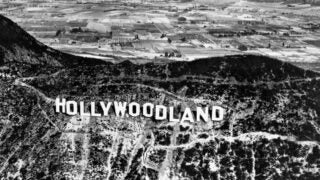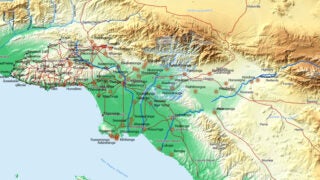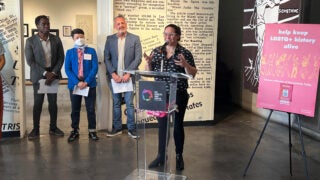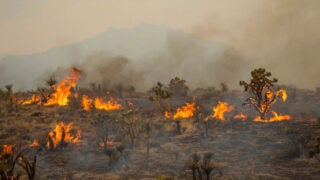For more than 100 years, the Los Angeles Memorial Coliseum has kept a finger on the pulse of music, politics, religion and culture. Where else could you see both a pope and a pop star?
History
News Listing
USC Dornsife researchers are broadening our understanding of the tribe’s sustainable practices and its ancient customs and culture.
USC Life Trustee Steven Spielberg created the foundation three decades ago to preserve the stories of genocide survivors.
A doctorate in history from USC Dornsife — and a boost from the Trojan Family — led Christina Copland to a career as a genealogist at Ancestry.com.
Giving roses or celebrating love on Valentine’s Day are now a normal part of courtship, but USC experts say the history behind these choices may surprise you.
With Krampus-based movies, comic books and festivities growing in popularity, the scary Alpine holiday legend has gained a firm foothold in America.
The Hollywood sign, the Los Angeles Memorial Coliseum and many other points of interest are hitting their centenary this year. Historian Phil Ethington explains how the 1920s shaped today’s City of Angels.
“Mapping Los Angeles Landscape History” offers a first-of-its-kind look at the region’s natural ecology before European settlers arrived.
“Themes that came up in the magazine are still relevant and with us today,” says the exhibit’s curator, USC Libraries’ Alexis Bard Johnson.
Outlawing controlled burns didn't work. As demand for prescribed fire increases across California, experts explore traditional and modern methods for building wildfire resilience in a burning world.

